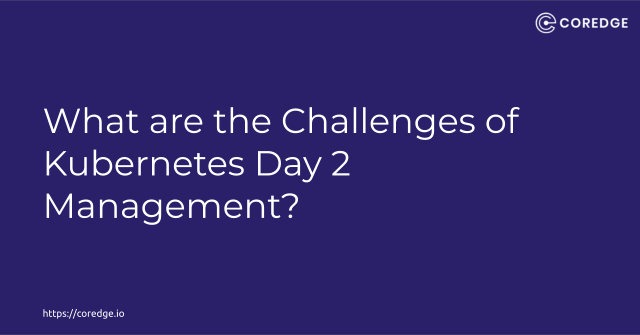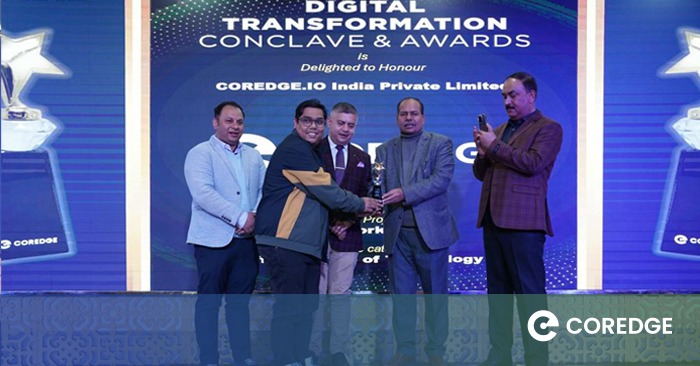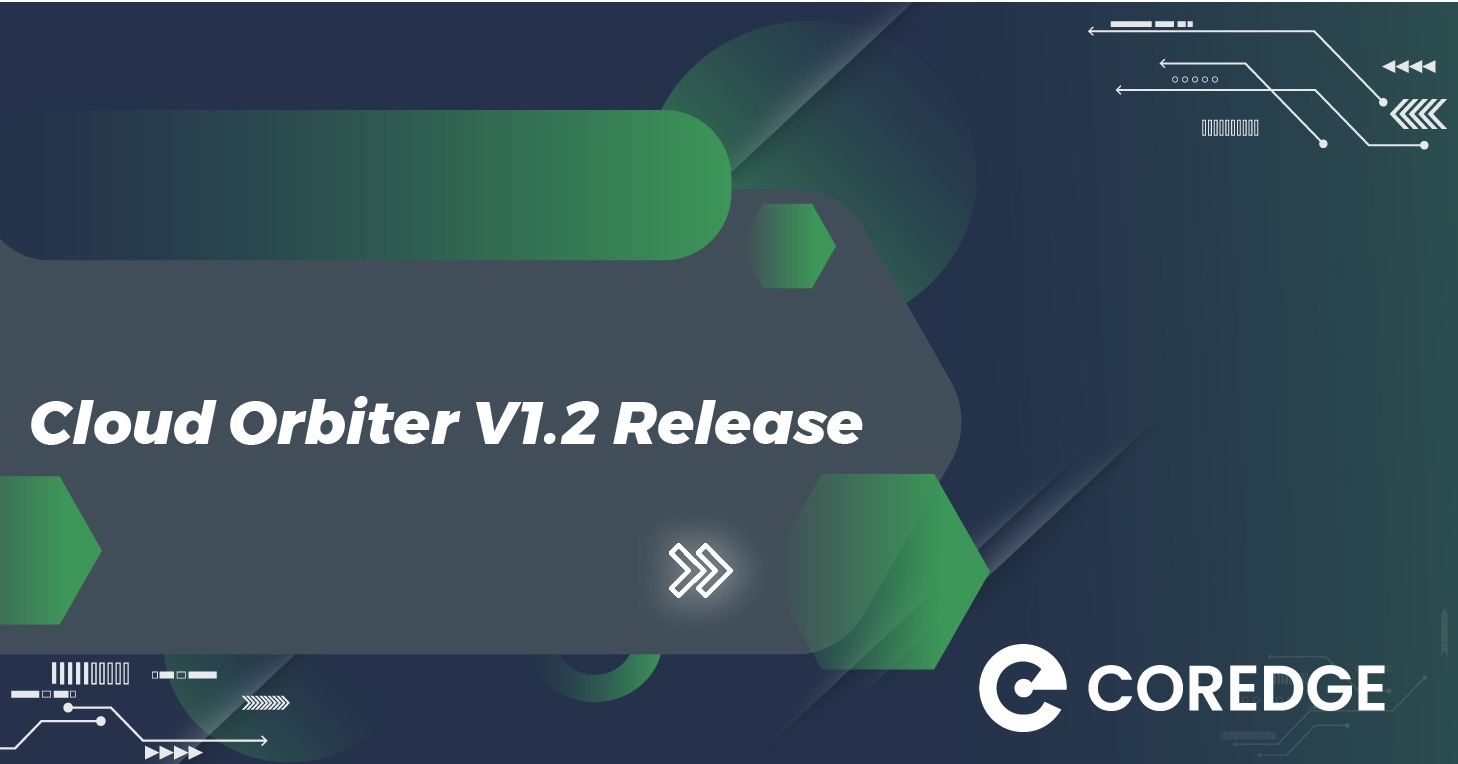What are the Challenges of Kubernetes Day 2 Management?
Coredge Marketing
November 23, 2021

What is Kubernetes and why its management is so important?
Whether small or big companies migrating to Kubernetes, they have been improved in terms of development, less friction, agility, and so on. With Kubernetes, it is easy for companies to scale applications, deploy services rapidly, roll out new features, and optimize hardware using the required resources. What companies need is to monitor, troubleshoot, and maintain applications to meet the agility, compliance, and security requirements.
Why Does Day 2 Management is so painful?
Day 2 Kubernetes management plays a vital role once you deploy everything. It does not seem to be easy as the users have to face many challenges during the phase. The challenges in Kubernetes Day 2 management are quite common and multifaceted as operations teams increase nodes and scale apps to work for business objectives in the right direction.
Some of the challenges are given below:
Security is a Major Challenge:
Kubernetes gives a way to run containers and while managing day 2 operations, it becomes typical to manage or balance security. It is needed to put security automation into the DevOps cycle pipeline. For ensuring better outcomes, the organizations must implement best security practices and test whether CI/CD pipelines are functional tests or automated units.To minimize security risks, it is highly needed to make intelligent choices and handle security risk factors. Managing security in any application can be expensive as it needs to be continually controlled and re-evaluated. Right from public or private Kubernetes access to workload security access, there are various security options available! However, all require a measured choice to solve a single point of failure and other pressure on the DevOps team.
Observability is Second Big Challenge:
Day 2 Kubernetes management needs highly advanced observability features. These features are not provided by monitoring tools that are used in the Kubernetes development environment. Kubernetes clusters running in production are characteristically deployed alongside different technologies that should be debugged to determine the root cause of the issue.
In terms of observability, you should understand how quickly you are getting notifications if anything is failing, how rapidly you are getting triggered by any problem, how effectively can you monitor these problems and mitigate them, how can you find out the root cause of the problem. All these are phases of observability that assist in relieving the consumer impact or restoring the service to a suitable level of performance and availability.
Scalability is Another Concern:
Scalability is crucial in Kubernetes day 2 management due to the reason that when companies or engineers start working on Kubernetes, they could have some clusters running. But when some projects get deployed, Kubernetes can be spread faster than before. This is why, IT people or engineers striving for Kubernetes day 2 management should think about the location of the cluster, number of clusters, size of the cluster, and the physical nodes associated with the cluster. The larger the cluster will be, the more challenging it will be to manage. It becomes quite typical to troubleshoot a 100-node cluster. So, it is recommended to troubleshoot a smaller size cluster if it fails. This will make it easy to isolate issues, monitor, find the right balance and work further.Apart from these, storage, high availability, development can also be some of the challenges that organizations face during Kubernetes day 2 management, specifically when working on business-critical applications.
For any doubts, please contact our team at Coredge. We have experts in Kubernetes who develop and deploy projects on large scale.
Write an email to us at talktous@coredge.io





